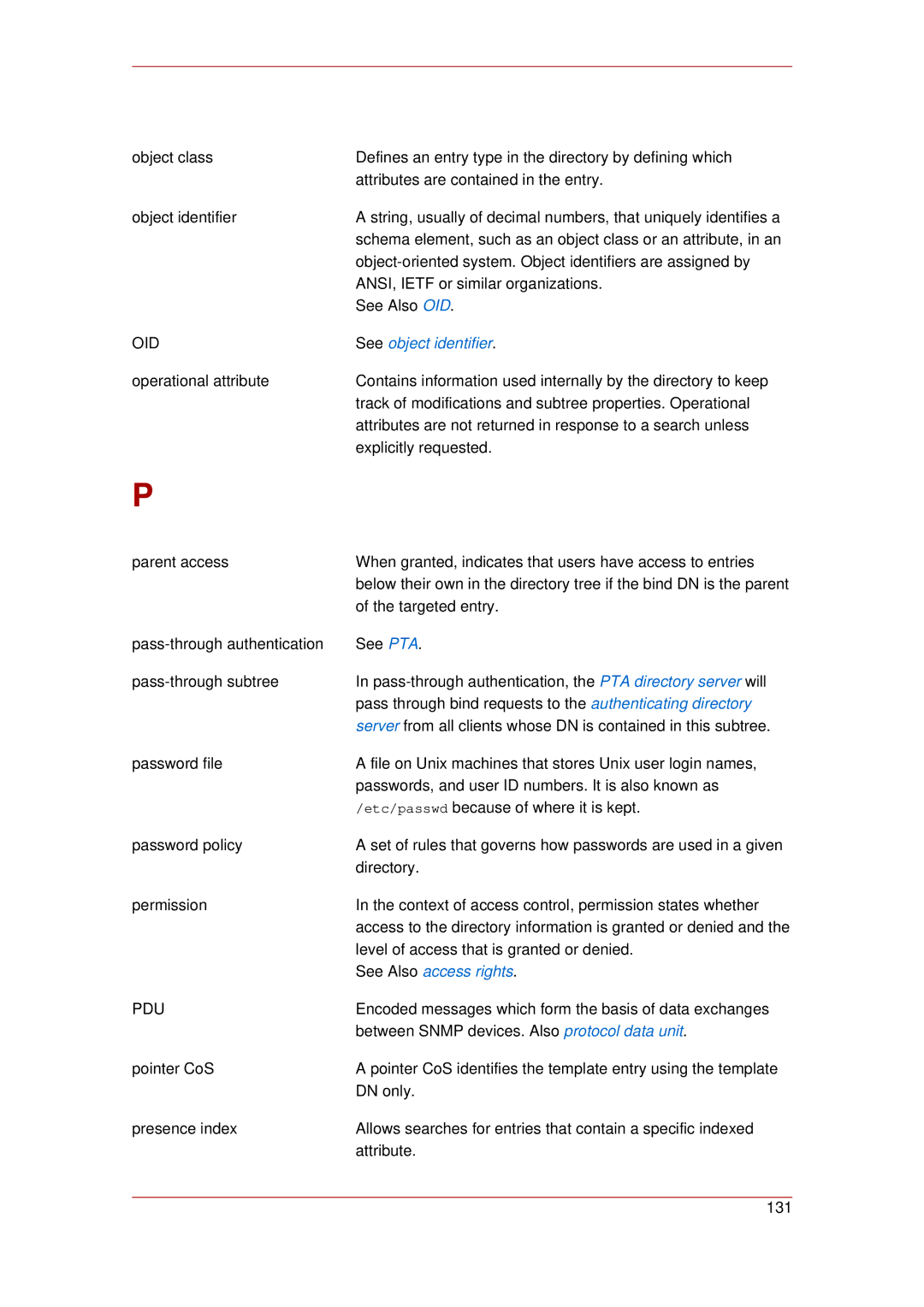
object class | Defines an entry type in the directory by defining which |
| attributes are contained in the entry. |
object identifier | A string, usually of decimal numbers, that uniquely identifies a |
| schema element, such as an object class or an attribute, in an |
| |
| ANSI, IETF or similar organizations. |
| See Also OID. |
OID | See object identifier. |
operational attribute | Contains information used internally by the directory to keep |
| track of modifications and subtree properties. Operational |
| attributes are not returned in response to a search unless |
| explicitly requested. |
P
parent access | When granted, indicates that users have access to entries |
| below their own in the directory tree if the bind DN is the parent |
| of the targeted entry. |
See PTA. | |
In | |
| pass through bind requests to the authenticating directory |
| server from all clients whose DN is contained in this subtree. |
password file | A file on Unix machines that stores Unix user login names, |
| passwords, and user ID numbers. It is also known as |
| /etc/passwd because of where it is kept. |
password policy | A set of rules that governs how passwords are used in a given |
| directory. |
permission | In the context of access control, permission states whether |
| access to the directory information is granted or denied and the |
| level of access that is granted or denied. |
| See Also access rights. |
PDU | Encoded messages which form the basis of data exchanges |
| between SNMP devices. Also protocol data unit. |
pointer CoS | A pointer CoS identifies the template entry using the template |
| DN only. |
presence index | Allows searches for entries that contain a specific indexed |
| attribute. |
131
